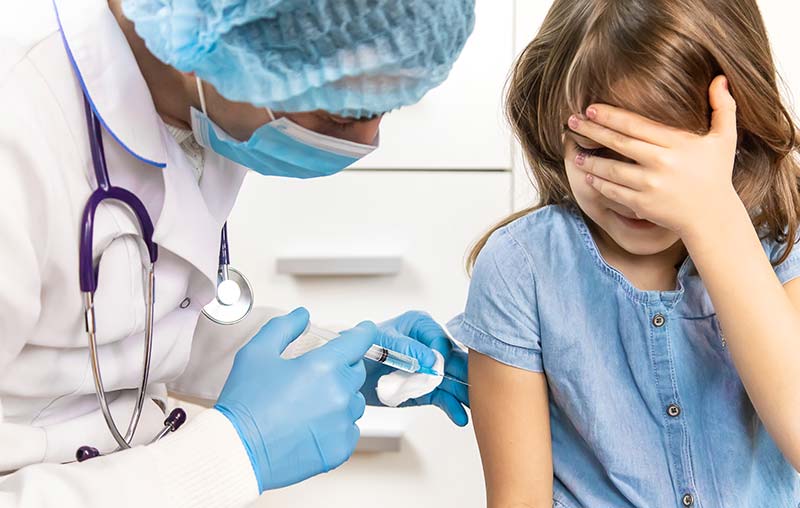Vaccination has been a cornerstone of public health for decades, eradicating diseases and safeguarding communities. Amid the ongoing global COVID-19 pandemic, whether kids should get the COVID-19 vaccine has sparked intense debate among parents, caregivers, and medical professionals. With scientific evidence evolving and global recommendations being issued, exploring the benefits, safety, and implications of vaccinating children against COVID-19 is crucial.
The Importance of the COVID-19 Vaccine for Kids
Children, while generally experiencing milder symptoms of COVID-19, can still suffer from severe cases, long-term complications, or even death. Moreover, they can transmit the virus to vulnerable populations. Vaccinating kids helps to:
- Reduce the risk of severe illness.
- Prevent hospitalizations and fatalities.
- Curb community transmission.
- Minimize disruptions to education and social activities.
Protecting children through vaccination isn’t just about individual safety—it’s about contributing to a broader public health effort.
Is the COVID-19 Vaccine Safe for Kids?
Safety remains a top concern for parents considering the COVID-19 vaccine for their children. Before approval, vaccines undergo rigorous clinical trials to ensure they meet stringent safety standards. For younger age groups, manufacturers conduct additional studies to tailor dosage and monitor side effects.
Key findings from these studies include:
- Mild Side Effects: Common reactions like pain at the injection site, fatigue, or low-grade fever, which are temporary and expected.
- Rare Complications: Sporadic instances of myocarditis (inflammation of the heart) are observed predominantly in male adolescents, with most cases resolving quickly.
- Ongoing Monitoring: Continuous surveillance ensures long-term safety, with health authorities like the CDC and WHO providing updates as new data emerges.
Efficacy of the COVID-19 Vaccine in Children
Clinical trials have demonstrated that the COVID-19 vaccine effectively prevents severe illness in children. Vaccinated kids show a significantly reduced risk of hospitalization and death compared to their unvaccinated peers. Moreover, vaccines help reduce the spread of the virus, protecting communities and allowing families to return to pre-pandemic routines.
Benefits of Vaccinating Kids Against COVID-19
Vaccinating children offers numerous benefits:
- Direct Protection: Reduces the likelihood of severe illness, hospitalization, and death.
- Herd Immunity Contribution: Helps limit virus transmission, protecting unvaccinated or immunocompromised individuals.
- Mental Health Improvements: Reduces anxiety associated with the fear of infection, enabling kids to socialize and learn without interruptions.
- Stabilizing Daily Life: Prevents school closures and ensures consistent access to education.
COVID-19 Vaccine Recommendations for Children
Global health organizations like the CDC, WHO, and UNICEF recommend COVID-19 vaccinations for eligible children, typically starting at age six months. Dosage varies by age group:
- Six months to 4 years: Smaller doses tailored to developing immune systems.
- 5–11 years: Intermediate dosage reflecting robust immune responses.
- 12 and older: Same dosage as adults for optimal efficacy.
Parents are encouraged to consult pediatricians to address concerns and tailor decisions based on individual health needs.
Myths and Facts About Kids and COVID-19 Vaccination
Misinformation often clouds decision-making. Let’s debunk common myths:
Myth: COVID-19 isn’t serious for kids.
Fact: While severe cases are rarer, they do occur. Vaccines lower the risks significantly.
Myth: Vaccines cause infertility in kids.
Fact: No evidence supports this claim. The vaccine does not affect fertility or hormonal development.
Myth: Natural immunity is better than vaccine-induced immunity.
Fact: Vaccine-induced immunity is safer and more reliable without the risks of severe disease.
How to Prepare Your Child for the COVID-19 Vaccine
Preparation helps ease children’s fears and ensures a smooth experience:
- Discuss Openly: Explain why vaccines are essential in age-appropriate language.
- Bring Comfort Items: A favorite toy or blanket can soothe nervous kids.
- Reward Positivity: Celebrate their bravery with small treats or praise.
What to Expect After Vaccination
Post-vaccination, kids may experience mild side effects. Parents should monitor for:
- Injection site soreness.
- Temporary fatigue or fever.
- Swelling or redness around the injection area.
Severe reactions are rare. If unusual symptoms occur, seek medical advice immediately.

